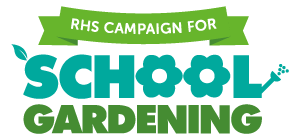Our approach goes above and beyond the Early Years Foundation Stage (EYFS) to foster deep level learning and optimise potential.
We offer a range of unique educational experiences which enable children to become successful, lifelong learners including:

Research has shown that when children are carrying out cross-lateral movements, this encourages the two sides of the brain to communicate. In turn, this strengthens the nerve-cell pathways linking both sides of the brain, making it easier for children to learn and absorb information and skills from activities. Other benefits of exercise for children include, healthy heart and lungs, strengthening of muscles and bones, as well as providing relaxation and developing co-ordination.
Music and movement sessions teach children to move with control and confidence whilst encouraging them to become more aware of the space around them. It also provides the opportunity for children to learn about their bodies and what they can do.

Practitioners use facial expressions and a voice that shows interest and excitement, together with lots of language, to engage babies whilst they explore and discuss the boxes.

Cooking in the Early Years is an enjoyable experience which offers a wealth of learning and development opportunities.
Our Nursery’s cooking activities provide cross curricular learning across all seven areas of the Early Years Foundation Stage, and because children enjoy the experience so much, they are not even aware they are learning new skills. These activities are a sensory experience often using all five senses, making it a more engaging and truly memorable experience.
Cooking also gives children the opportunity to extend their knowledge about healthy food options, explore where food comes from, and encourage a wide range of discussions.
Our cooking station is an experience that is on offer throughout the day. Practitioners will plan to cook with the children, but children are also encouraged to be independent and choose when they wish to cook. This might be once a week or every day.

Regular cookery sessions at our Nursery help children to learn valuable self-help skills, whilst enjoying cooking delicious recipes that can be shared with our families. Some of the skills children will acquire whilst cooking are listed below:

At our nursery, we believe that preparing children mentally for the challenges that life may bring, is just as important as preparing them intellectually and physically. In our ever-changing world, one third of children within nurseries today will go on to jobs that currently do not exist. To ensure they are as prepared for this as possible, it is vital that children’s Personal, Social and Emotional Development is at the forefront of everything we do. Making relationships, being able to regulate behaviour and understanding how to manage their feelings are key skills that children must learn to be successful in their later lives. With this in mind, our nursery has a dedicated area where children are able to develop these skills.
Starting with our youngest children; the ‘Feelings Bag’ is filled with resources that allow them to begin to acknowledge different types of feelings, such as happy, sad, shy, excited and angry. Practitioners use tools and resources, supported by detailed activity cards, to introduce these feelings to the children and also to demonstrate different ways in which they can be supported or ‘made to feel better’. This provides children with the initial understanding of how someone might make them feel happy and excited, or supported when they feel sad or shy.
As the children develop their understanding of feelings, the emotional aspect is added into our learning experience. This is achieved by helping children take their understanding of different feelings, and begin to look at how they may affect others. Activities such as using an animal puppet to simulate body language which represents how a child might be feeling, and supporting the children in their language and behaviours, are key ways that practitioners help children secure an understanding of emotional patterns and the impact of the actions of others.
The final stage, which takes place with the Pre-School aged children, explores the development of relationships and how children’s understanding of behaviour patterns which relate to emotions and feelings, can be used to support them in building lasting, meaningful relationships with adults and children.
As children develop, more advanced feelings and emotions are included, to further extend children’s vocabulary and their comprehension of how to process and handle these, and many other feelings, for example, feeling blissful, ecstatic or panicked.
It is through these activities and interactions that children are also taught about the concept of anger, frustration, and being annoyed when things don’t go how they planned or when something unpleasant happens. Staff use stories and activity cards to support each child in knowing that it is okay to feel these emotions, whilst also providing them with the tools to be able to recognise and regulate their behaviour to ensure they act appropriately.

In small groups, with their Key Person, children are encouraged to share the contents of their ‘Chatter Box’ with their peers. This activity is always undertaken in small groups to allow each child in the group a turn to discuss a few of their items. All children will be given the chance to ask questions and participate in conversations within the group.
Taking part in ‘Chatter Box’ time will encourages children to listen to their peers which helps develop their attention and concentration skills.
Our ‘Chatter Boxes’ encourage and enable the older children to speak confidently in a friendly and secure situation, whilst initiating conversations and forming good relationships with others. These are all skills which are required for school readiness and which will help to ensure a smooth transition for your child when they start their Reception year.

Children learn important life lessons – what better way than to learn from wise elderly people who have lived a long and interesting life?
Children will bring cakes or biscuits made at the nursery or share their artwork on the visit and descriptive language and recall on memory skills will be encouraged. The strong partnership helps the children have a sense of their own community and offers local citizenship; all strengths needed for the awareness of the world around them.

Children today, have an ever-growing curiosity about the outside world, where foods come from and how they grow. Garden Champions is our own bespoke gardening activity. This activity extends children’s knowledge of the outdoor environment, habitats, caring for living things, growth cycles and growing vegetation outdoors. Our Garden Champion activities are an effective method of harnessing our children’s curiosity in this area and shaping their understanding of the world around them.
Our nursery has a nominated ‘Garden Champion’ who attends regular training sessions to further develop their own knowledge and skills, enabling them to bring back to nursery, a range of seasonal activities which can be carried out with the children. This is not simply an activity of planting grass seeds in a pot, but is in fact an opportunity for children to make use of real-life gardening tools and equipment to prepare an area, sow seeds, tend to vegetation and harvest their produce at the end of the process. The use of these tools further extends the children’s knowledge and understanding of how to manage their own risk, handle tools carefully, and keep themselves safe in an outdoor environment. Our children always complete their own visual risk assessment of the area, with the support of a practitioner, and decide for themselves if it is an appropriate and safe time to complete their activity. If the children decide it is not, they will then discuss what can be done to make it so.
Fruits and vegetables grown are picked and prepared by the children, alongside the nursery chef, who will then factor them into the menu for that day. This provides children with the ‘garden to plate’ experience, a fundamental aspect of supporting them in being able to make informed choices about the foods they put into their bodies.
Our nursery is registered with the Royal Horticultural Society and has achieved their RHS accreditation.



Our Weather Boxes have been specifically designed for all age ranges to provide additional learning and development opportunities outside of the classroom environment. From story times and mark making, to mobile mud kitchens and science and investigation, these boxes have it all.
The boxes have been dynamically designed to provide everything our practitioners need to effectively carry out the activities contained within the box. Children are given the free choice as they enter the garden or head out for their walk, to choose which, if any boxes, they would like to access. Each adult-led activity using a Weather Box provides cross-curricular learning for children of all ages and covers the breadth of the Early Years Foundation Stage Curriculum.
Outside of the Early Years Outcomes, our children learn the importance of looking after the environment around them. They are encouraged and effectively supported in playing and exploring, actively learning, and questioning ‘the norm’ with their skills of creativity and critical thinking. This is all achieved through the use of a Weather Box and the interaction and teaching from our practitioners.

Our nursery features a ‘Chatter Approach’ in the walk up to, or reception area of the building. The chatter approach is designed to promote each child’s communication and language development through a series of visual prompts they can explore. These may include a range of images, questions or small challenges to complete and share with their peers/key person within the setting.
Located close to Bishop’s Stortford town centre, our Nursery is perfectly positioned for both local residents and commuters into London, with easy access to the M11.








